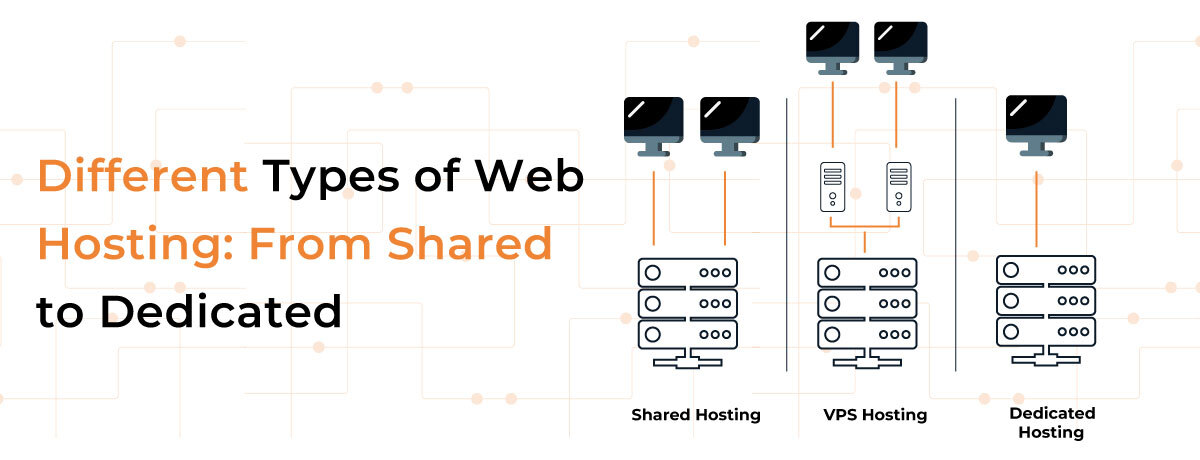Understanding the different types of web hosting is essential for anyone looking to establish a successful online presence. Whether you’re a novice blogger, a business owner, or an IT professional, choosing the right hosting can significantly impact your website’s performance, security, and scalability. In this guide, we’ll explore the various types of web hosting, helping you determine which is the best fit for your needs.
Table of Contents
Types of Web Hosting
When embarking on your web hosting journey, it’s crucial to understand the different types of web hosting available. Each type offers unique benefits and is tailored to specific requirements, from shared environments to isolated dedicated servers.
Implementing a Multi-Layered Defense Strategy
Shared Hosting
Shared hosting is often the entry point for many when exploring the different types of web hosting. It involves multiple websites sharing a single server’s resources, such as CPU, RAM, and disk space. This is the most cost-effective solution and is perfect for small websites, blogs, or personal projects with limited traffic. However, because you share resources, your site’s performance can be affected by high traffic on neighboring sites.
Virtual Private Server (VPS) Hosting
Among the types of web hosting, VPS hosting offers a middle ground between shared and dedicated hosting. Although multiple sites share the same physical server, each has its own dedicated portion of the server’s resources. This allocation provides more stability and performance compared to shared hosting. VPS hosting is ideal for medium-sized businesses or websites experiencing growth, as it offers more flexibility and control at a moderate cost.
Cloud Hosting
Cloud hosting is a modern solution among the types of web hosting, leveraging a network of virtual servers to host websites. This setup provides exceptional scalability and reliability, as resources can be adjusted according to demand. Unlike traditional hosting, cloud hosting ensures that your website is not dependent on a single server, reducing downtime risks. This makes it an excellent choice for businesses expecting rapid growth or dealing with fluctuating traffic.
Dedicated Hosting
Dedicated hosting represents the pinnacle of the types of web hosting, offering an entire server exclusively for your website. This type of hosting delivers unparalleled performance, security, and control, allowing you to customize server settings to meet your specific needs. It is suitable for large enterprises with high traffic volumes and stringent security requirements. Although it is the most expensive option, the benefits of dedicated hosting are unmatched in terms of resources and reliability.
Managed Hosting
Managed hosting can be applied to any of the types of web hosting mentioned above. With managed hosting, the provider takes care of the server management tasks, including updates, security patches, and monitoring. This allows you to focus on your core business activities without worrying about the technical aspects. Managed hosting is particularly beneficial for businesses without a dedicated IT team, ensuring that experts manage and optimize your hosting environment.
Why Choosing the Right Type of Web Hosting Matters
Selecting the appropriate types of web hosting is crucial for your website’s success. Factors such as traffic expectations, technical requirements, budget, and growth projections should guide your decision. For beginners or small projects, shared hosting offers an affordable starting point. For those needing more control, VPS or cloud hosting provides flexibility and scalability. Meanwhile, dedicated hosting is perfect for large-scale operations demanding high performance and security.
At Host Byte, we understand the complexities of choosing the right hosting solution. Our team is here to assist you in navigating these options and finding the most suitable plan tailored to your unique needs.
Conclusion
In summary, understanding the different types of web hosting is vital for making an informed decision that supports your website’s goals and requirements. From shared hosting for small-scale websites to dedicated hosting for enterprise-level applications, each type offers unique advantages. By evaluating your specific needs and consulting with hosting experts, you can ensure that your choice facilitates your site’s growth and success.
For more insights and expert advice on web hosting, visit our blog at HostByte. Here, you’ll find a wealth of information to help you make the best choice for your online ventures.




















